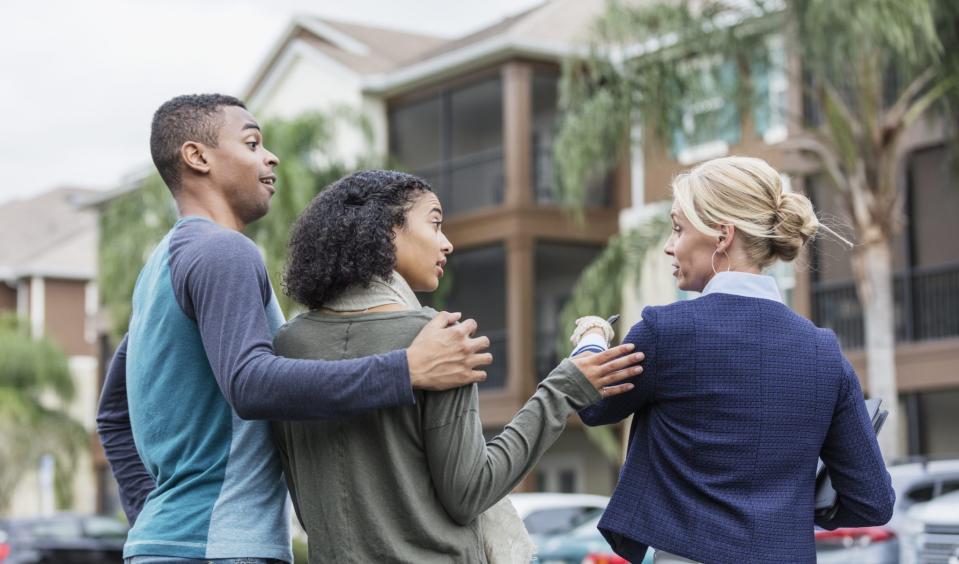
Hurricanes and homeowners associations (HOAs) have cooled Florida’s hot condo market. Condo homeowners have been forced to lower their listing prices to offload their properties—going against the national trend of rising condo prices, a Redfin report published Monday shows.
Condo prices in Jacksonville dropped nearly 7% year over year, while Miami’s decreased almost 3%. Meanwhile, average U.S. condo list prices are up over 8%, according to Redfin. The major culprit? Climbing costs associated with owning a condo in Florida, namely surging insurance and HOA costs in the aftermath of the collapse of the Champlain Towers South condominium in Surfside, experts say. In 2021, the beachfront condo building collapsed and killed 98 people.
“Two events happened recently that affected the Florida housing market: Hurricane Ian in 2022 and the Champlain Towers collapse in 2021,” Craig Studnicky, founder and CEO of South Florida luxury real estate firm ISG World, tells Fortune. “In reaction to the hurricane, flood insurance rates went up.”
Now, the state of Florida requires that all condos have “adequate reserve for replacements,” Studnicky says, meaning that condo associations must have enough money on reserve to replace structures. Take a roof’s life span, for example, which is about 25 years. “If the estimated replacement cost for a roof is $2 million, the association must collect $80,000 annually to accumulate the replacement cost by the end of the 25-year period,” according to insurance firm CRC Group.
Needing that cash on hand makes HOA fees higher—and more condo properties out of reach for homebuyers.
“Realtors are not selling the properties well,” Studnicky says. “The single-family-home market sales are not affected as much, although flood insurance has doubled or even tripled. South Florida is unique because there is very little inventory and huge demand, so condos are really being affected.”
Where and why condo prices are falling
Jacksonville, Miami, and Orlando condos have seen the most significant price drops during the past year, according to Redfin data. Jacksonville condo owners slashed prices 6.5%, Miami prices dropped 2.5%, and Orlando’s fell nearly 5%.
Meanwhile—as Studnicky says—single-family homes are faring better, meaning that their prices have actually increased. In Miami, for example, the median sale price of single-family homes increased by double digits year over year, sales rose by 9%, and new listings also shot up 13%, according to Redfin.
Condo sales, on the other hand, are slow because the cost of both buying and owning a condo has surged. Homeowners insurance in Florida increased about 40% year over year in 2023—and a whopping 102% during the past three years, according to the Insurance Information Institute.
Florida insurance costs three times the national average, which clocks in at $1,759 per year for $250,000, according to Bankrate. While HOA fees can vary greatly from building to building, the costs can be “shocking,” Juan Castro, a real estate agent in Orlando, told Redfin. In some cases, condos that once had a $400 monthly maintenance fee may now have a $700 fee, which is “causing buyers to rethink their plans.”
And real estate investor Elena Nuñez Cooper says that condos don’t typically have a cap on HOA fees, and many people can buy a single-family home for “less than what most luxury condos cost, not even including HOA fees.”
Especially for millennials, “an ever-increasing HOA fee may not be feasible for budget reasons versus a home price that’s locked in via a mortgage,” Cooper says.
With insurance and HOA fees as high as they are, sellers have little choice but to lower their listing prices as condo ownership becomes less attractive—and affordable.
“These increased expenses, paired with economic uncertainties like inflation and potential interest rate hikes, are prompting potential buyers to exercise caution,” Matt Dunbar, senior vice president of the Southeast region for Churchill Mortgage, tells Fortune. “As a result, the higher financial burden associated with condos is leading buyers to explore other housing options that may offer more financial benefits and fewer ongoing expenses.”
The new versus the old
While condo prices are falling as the housing type becomes less attractive to some buyers, condos are by no means obsolete in Florida. Studnicky says that existing properties that are less than 10 years old are “extremely popular” among condo homebuyers, but “if we are considering condos that are preconstruction, that is a different story.”
New condos aren’t as popular anymore because they typically come with a higher price tag, Studnicky says. Once a property is valued at more than $2 million, it’s more difficult to find Latin American buyers, who dominate that housing market.
“We are seeing more Latin American buyers in Orlando than in South Florida,” Studnicky says. “The American buyer is still interested in properties over $2 million, but is concerned with the date of delivery for these properties. For buyers, a huge concern is not the architecture, design, or location, but rather the timing.”
Source: Fortune.com